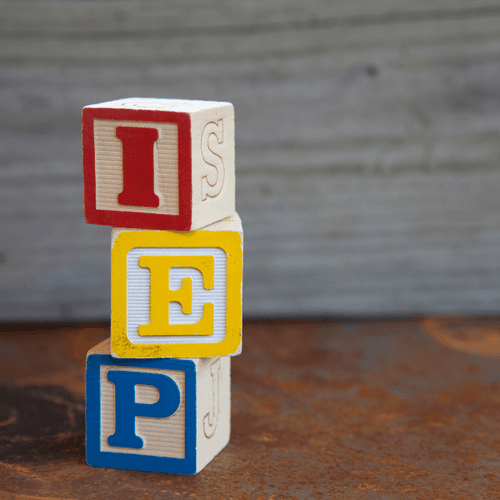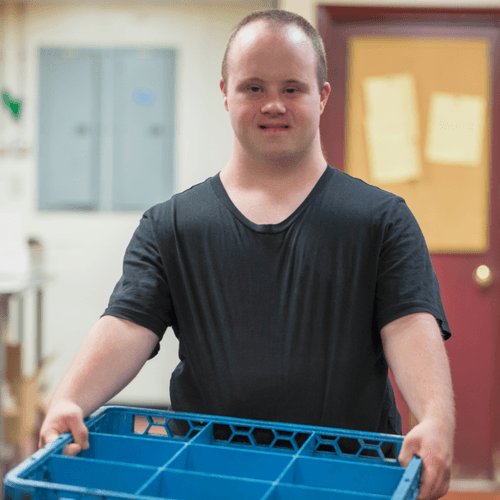Introduction
In Minnesota, children and adults with Down syndrome are eligible for a variety of home and community based services such as grants, health care programs and waivers. We often broadly refer to these programs as county services. These programs help people with Down syndrome meet needs related to their disability, increase independence and pay for disability related expenses.
County services are most often accessed through Medical Assistance (MA), Minnesota’s Medicaid program. Because of this, often the first step to accessing county services is to apply for and enroll in MA. Learn more here: Accessing County Services
County Service Programs Overview
The Down syndrome community commonly accesses the following county service programs:
Family Support Grant (FSG)
FSG is a cash grant to families of children under 25 years old with a certified disability who live at home. The grant must be spent on services and items that are directly related to the child's disability. Only expenses that are beyond the typical cost of caring for a child of similar age may be covered. FSG is not available in every county and how the grant is distributed differs by county. MA enrollment is not required for FSG eligibility.
FSG income limit: Annual adjusted gross income less than $130,807 per year (effective 1/1/25)
Maximum Grant Amount: $3,113.99 per year
Community First Services & Supports (CFSS)
CFSS is a Minnesota health care program that offers flexible options to meet people’s unique needs. CFSS replaced the Personal Care Assistance (PCA) and Consumer Support Grant (CSG) on October 1, 2024.
CFSS covers the same main services that the former PCA program covered. A PCA is a trained support staff who helps with basic daily living tasks. PCAs help people with disabilities be more independent on their own. PCA covers four basic categories of services:
Activities of daily living (ADLs): Daily basic self-care tasks (dressing, grooming, bathing, eating, positioning, transfers and mobility).
Instrumental activities of daily living (IADLs): More complex daily tasks to care for yourself and your home (shopping, paying bills, meal preparation).
Health-related procedures/tasks: Tasks such as medication management or help with range of motion exercises.
Observation and redirection of behaviors: Monitoring behaviors and redirecting to more positive behaviors when needed.
New features of CFSS include:
Parents may be a PCA for their child
A consultation services provider teaches about CFSS and provides support in writing service delivery plans
More options for who can be workers
Access to a worker training and development budget
Ability to purchase goods and services that reduce or eliminate the need for staff
Ability to purchase personal emergency response system (PERS) for individuals 18+
Home and Community-based Waiver Programs
Waivers are federally funded programs that provide funding for home and community-based services for children and adults who need extra help to stay at home instead of moving to a nursing home or other medical facility. In general, waiver programs are for people with high needs for support due to their disability. Usually this is a need for a 24/7 care plan and a need for support in different service areas such as alternative therapies, behavior support, individualized home supports, home modifications, respite, support staff, etc. A disability certificate is needed for waiver eligibility.
Commonly Accessed Waivers in the Down syndrome Community:
Community Access for Disability Inclusion (CADI) Waiver- CADI waiver is for people who need the level of care provided in a nursing home.
Developmental Disabilities (DD) Waiver- DD waiver is for people with developmental disability or related conditions who need the level of care provided in a medical facility. DD waiver requires standardized assessments to show DD diagnosis (IQ testing and adaptive functioning assessment). Support plans for DD waivers include a habilitation goal.
Waiver Service Options*
Adult day services
Assistive technology (communication device, software, etc.)
Case management
Chore services
Consumer Directed Community Supports (CDCS)- service option giving the person flexibility and responsibility to direct services/supports
Day support services
Employment development, exploration and support
Environmental accessibility adaptations (home modifications such as fences, gates, cameras, etc.)
Family training and counseling (training for self advocacy, person-centered planning, etc.)
Home delivered meals (18+)
Homemaking services (cleaning, home management, personal needs)
Independent living skills therapies (art, music, recreational)
Individualized home supports
Positive support services (behavior support)
Respite and support staff
Specialized equipment and supplies (medical supplies/equipment such as wipes, shower chair, etc.)
Transportation
*Service options are waiver dependent and based on assessed needs for support. This is not a complete list of service options.
Other Important Details
Medical Assistance enrollment is required for CFSS and waiver eligibility
A MnCHOICES Assessment determines program eligibility for CFSS and waivers. Program eligibility is based on assessed needs for support related to the person’s disability.
Family Connectors are here to talk through county service programs, what they may look like for your loved-one with Down syndrome and how to access them. Reach out to us today to learn more!
Connect with a Family Connector:
Call: 651-603-0720 option 2
Email: connect@dsamn.org
Click here to complete Family Connector support request form


